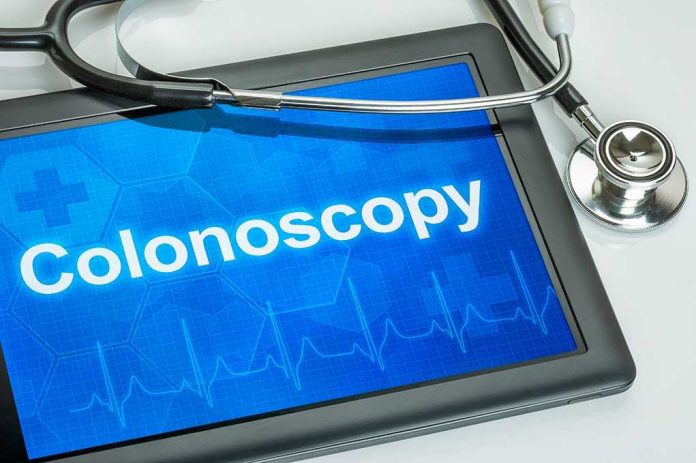
A breakthrough in colorectal cancer detection could render colonoscopies obsolete, providing a non-invasive alternative that aligns with conservative values of cost-effectiveness and accessibility.
Story Snapshot
- University of Geneva researchers develop a detailed gut bacteria catalogue.
- This innovation allows for 90% accuracy in colorectal cancer detection via stool tests.
- The new method could replace invasive and costly colonoscopies.
- The approach is praised for being accessible and affordable.
Advancements in Gut Microbiome Research
Researchers at the University of Geneva have unveiled a groundbreaking subspecies-level catalogue of gut bacteria, marking a significant leap in colorectal cancer (CRC) diagnostics. Utilizing advanced machine learning, this catalogue allows for 90% sensitivity in CRC detection through non-invasive stool samples. This accuracy rivals that of traditional colonoscopy, offering a promising alternative that is both accessible and cost-effective.
The findings, published in *Cell Host & Microbe*, could revolutionize early detection methods, making them more widely available, especially in low-resource settings. The focus on functional diversity within bacterial species overcomes previous limitations of species- or strain-level analysis, broadening the scope of microbiome-based diagnostics.
Historical Context and Need for Innovation
Colorectal cancer remains the second leading cause of cancer deaths globally. Current screening methods, like colonoscopy, are invasive, costly, and often delayed, leading to late-stage diagnoses. The gut microbiome’s linkage to CRC risk has been acknowledged for years, but translating this understanding into practical diagnostics has been challenging due to the complexity of microbial communities.
Advancements in AI and sequencing have enabled deeper analyses, culminating in the University of Geneva team’s novel subspecies-level catalogue. This breakthrough addresses the urgent need for more accessible and effective CRC screening tools, particularly as CRC incidence rises among younger adults.
Implications and Future Prospects
The immediate impact of this new diagnostic tool could be monumental in improving CRC screening uptake, especially among populations deterred by colonoscopy. In the long term, it holds the potential to reduce CRC mortality through earlier detection and treatment. Furthermore, the method could pave the way for expanding microbiome-based diagnostics to other diseases, deepening our understanding of gut microbiota’s role in human health.
Goodbye colonoscopy? Simple stool test detects 90% of colorectal cancers #ColorectalCancer#EarlyDetection#GutHealth#Microbiome#CancerScreening#ScienceNews#HealthTech#SassyInfomaniachttps://t.co/nNSwhLtrOl
— Sassyinfomaniac (@sassyinfomania) September 18, 2025
However, further validation in larger and more diverse cohorts is necessary before widespread clinical adoption. Despite these challenges, the study is hailed as a significant advance in microbiome science and cancer diagnostics, with the potential to influence global cancer screening guidelines and practices.
Sources:
University of Geneva official press release
Bioengineer.org article on early CRC detection
SciTechDaily coverage on new stool test
ecancer article on gut bacteria and CRC



